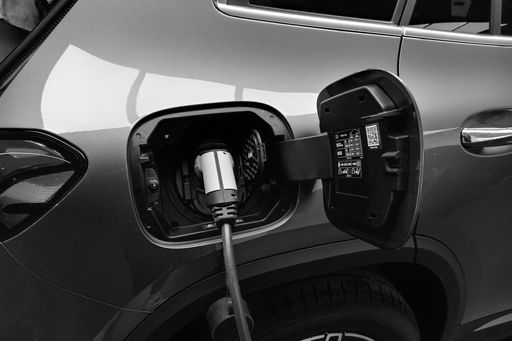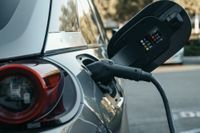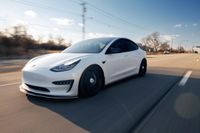EV Mythbusters: Do Electric Cars Really Produce Fewer Carbon Emissions?
In part five of our series exploring myths surrounding EVs, we assess the greenwashing claims.

The Claim
In the US, the Florida senator Rick Scott said there was “ample evidence to suggest that EVs are not as clean as people are being led to believe and folks deserve to know the truth”. But it is not only the rightwing press. In June, the Guardian published an article by the actor Rowan Atkinson in which he said he felt “duped” by EVs’ carbon claims and that the reality was “very different”, citing Volvo research suggesting greenhouse gas emissions during production of an electric car are almost 70% higher than when manufacturing a petrol one.
The Science
Any assessment of carbon emissions associated with a product needs to look at its whole life cycle, from manufacture to scrapping (and, hopefully, recycling). Many claims about electric cars’ supposedly worse environmental toll focus on manufacturing and ignore the actual use of the cars.
The grain of truth in the criticism is that EVs do indeed take significantly more energy to manufacture. Battery production requires large amounts of electricity to heat ovens to bake electrode materials, and to charge and discharge the battery to prepare it for use. While electricity can be produced with zero emissions, most countries still burn carbon-heavy fossil fuels to turn generators.
Any Caveats?
Batteries are not the only way to get cars to net zero. You can fill them with “e-fuels” – petrol made with carbon from the air, hydrogen from water, and green electricity. That technology works and will probably be used to power classic cars long into the future. Other people advocate using the hydrogen in fuel cells to run a motor.
However, in either case the energy efficiency is drastically lower than using that electricity directly, and the fuel is likely to be needed for planes, which are much harder to decarbonise.
The Verdict
The scientific consensus is overwhelming: on any realistic like-for-like comparison a battery car will be cleaner than its petrol or diesel equivalent. Burning fossil fuels to make and drive electric cars will still cause emissions, but at a lower level than inefficient fossil fuel engines.
That is true of today’s grid (in richer economies, at least) but in tomorrow’s grid the benefits will grow as long as countries continue to shift away from coal and gas to generate electricity. Putting batteries in cars so far appears to be the only practical way to shift the tens of millions of light vehicles sold every year towards net zero emissions.


